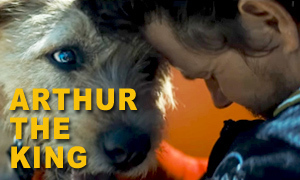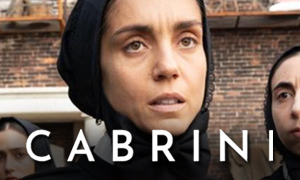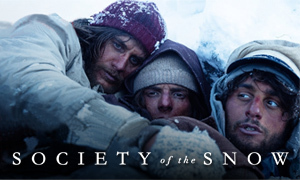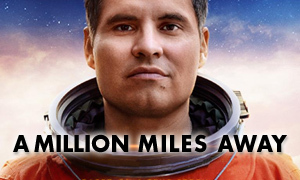Being the Ricardos: History vs. Hollywood
Nicole Kidman
Born: June 20, 1967
Birthplace:
Honolulu, Hawaii, USA
Lucille Ball
Born: August 6, 1911
Birthplace: Jamestown, New York, USA
Death: April 26, 1989, Los Angeles, California, USA (ruptured abdominal aortic aneurysm)
Javier Bardem
Born: March 1, 1969
Birthplace:
Las Palmas de Gran Canaria, Gran Canaria, Canary Islands, Spain
Desi Arnaz
Born: March 2, 1917
Birthplace: Santiago de Cuba, Cuba
Death: December 2, 1986, Solana Beach, California, USA (lung cancer)
J.K. Simmons
Born: January 9, 1955
Birthplace:
Grosse Pointe, Michigan, USA
William Frawley
Born: February 26, 1887
Birthplace: Burlington, Iowa, USA
Death: March 3, 1966, Los Angeles, California, USA (heart attack)
Nina Arianda
Born: September 18, 1984
Birthplace:
New York City, New York, USA
Vivian Vance
Born: July 26, 1909
Birthplace: Cherryvale, Kansas, USA
Death: August 17, 1979, Belvedere, California, USA (metastatic breast cancer)
Alia Shawkat
Born: April 18, 1989
Birthplace:
Riverside, California, USA
Madelyn Pugh
Born: March 15, 1921
Birthplace: Indianapolis, Indiana, USA
Death: April 20, 2011, Bel Air, California, USA
Bio: Television Writer
Jake Lacy
Born: February 14, 1985
Birthplace:
Greenfield, Massachusetts, USA
Bob Carroll Jr.
Born: August 12, 1918
Birthplace: McKeesport, Pennsylvania, USA
Death: January 27, 2007, Los Angeles, California, USA
Bio: Television Writer
Tony Hale
Born: September 30, 1970
Birthplace:
West Point, New York, USA
Jess Oppenheimer
Born: November 11, 1913
Birthplace: San Francisco, California, USA
Death: December 27, 1988, Los Angeles, California, USA (heart failure)
Bio: Television Writer & Producer
How much of Lucille Ball and Desi Arnaz's lives does the movie cover?
The Aaron Sorkin Lucille Ball movie focuses on one fictionalized tumultuous week in the couple's lives in 1952 as they confront accusations of infidelity in their marriage, in addition to accusations that Lucille Ball is a communist. One is a crisis that could end their marriage and the other is a crisis that could destroy their careers on their hit TV sitcom I Love Lucy. The plot is summed up in the movie's tagline, which explains that the couple is "threatened by shocking personal accusations, a political smear, and cultural taboos." The last part pertains to the discovery that Lucy is pregnant. While all of these events did happen, the Being the Ricardos true story reveals that they didn't happen in a single week like in the film.
This manipulation of the timeline is arguably the biggest inaccuracy with Aaron Sorkin's movie, and it has been pointed out by Lucy and Desi's daughter, Lucie Arnaz, who despite having an executive producer credit on the film, hasn't held back in criticizing the movie's truthfulness and condensing of events. "He's taking some theatrical license and sort of cramming a couple of true events that did happen, they just didn't happen at the same time." Aaron Sorkin admitted that while the three points of friction between Lucy and Desi in the film are historically true, he took creative license by condensing them into a single week in the movie. "They all happened, they just didn't happen in the same week," Sorkin stated during a Q&A after a screening of the film.
How did Lucille Ball and Desi Arnaz meet?
In researching how true is Being the Ricardos, we learned that Lucille Ball met Cuban-born bandleader Desi Arnaz in 1940 while shooting the film Too Many Girls, an adaptation of the hit Rodgers and Hart Broadway musical. By the second day of filming, they had developed an instant connection with one another and eloped later that same year.
Did Lucille Ball agree to star in I Love Lucy only if her husband, Desi Arnaz, could be her co-star?
Yes. Whether it was the network executives and sponsors' own xenophobic attitudes, their concern over the public's perception of such a depiction, or both, they were hesitant to get behind a TV show that prominently displayed interracial marriage in the early 1950s. They "said the public wouldn't believe I was married to Desi," Lucille Ball later recalled. In order to prove them wrong, Lucy and Desi set out on a vaudeville-style road tour. The success of the tour emphasized the public's acceptance of them, as well as their chemistry as a couple. CBS executives agreed to the show. -Lucy Desi Museum
In conducting our Being the Ricardos fact-check, we learned that I Love Lucy was an adaptation of Lucille Ball's popular radio comedy My Favorite Husband, which she starred in opposite a white actor, Richard Denning. The three writers who wrote for that show all came on board to write for I Love Lucy and are depicted in Aaron Sorkin's Lucille Ball movie.
Were Lucille Ball and Desi Arnaz the first interracial couple to appear on TV?
Yes. When Lucille Ball and her real-life Cuban-born husband Desi Arnaz starred together on I Love Lucy, which premiered in 1951, it marked the first time an interracial couple was depicted on television, and certainly on one of the three major networks. They are also considered to have had the first interracial kiss on television.
How else was I Love Lucy groundbreaking?
The series, which debuted in 1951 and aired for six seasons, is known for achieving several television firsts. While exploring the Being the Ricardos true story, we learned that the sitcom included the first ensemble cast, it was one of the first shows to be shot on 35mm film instead of being broadcast live, and it produced the first millionaire television stars. It was also pioneering for its use of a live studio audience and multiple cameras all filming at the same time. The I Love Lucy Christmas episode was one of the first holiday specials to air on TV. It was withheld from rerun syndication for decades, and then in 2013, CBS aired a colorized version of the Christmas episode, which attracted 8.7 million viewers.
I Love Lucy was one of the very first shows to be shot in Los Angeles and was part of a trend that shifted television production away from New York City, establishing Hollywood as the television production capital of the United States. In 1952, it became the first sitcom to reach number one in the Nielsen ratings (it remained there for four of its six seasons). As a result of its success, it was used as a blueprint for countless TV shows that followed. Lucy and Desi paid out of pocket to have the TV series shot on high-quality film, under the agreement that they would own the reels. This led to another first, as Desilu Studios invented the concept of the "rerun." Syndication profits helped them to further grow their studio. -Lucy Desi Museum
Was Lucille Ball the first woman to appear pregnant on television?
Yes. When Lucille Ball and Desi Arnaz became pregnant with their second child in 1952, the pregnancy was woven into the plot of their TV show I Love Lucy. It marked the first time that a woman appeared pregnant on one of the three major networks. Lucy and Desi's production company, Desilu Productions, consulted with network censors and church leaders as to what term could be used to describe her pregnancy. The show was permitted to use the term "expecting" instead of "pregnant," which was considered too risqué for TV at the time.
While exploring the Being the Ricardos historical accuracy, we discovered that the couple's real-life son, Desi Arnaz Jr., was born on January 19, 1953. "After our baby was born, I received thirty thousand congratulatory telegrams and letters," she said. The TV show wrote the birth into the episode "Lucy Goes to the Hospital," which was viewed by 44 million people or 71.7% of American households, making it one of the most-watched TV broadcasts of all time. -Lucy Desi Museum
What was Lucille Ball's favorite episode of I Love Lucy?
Her own personal favorite was the grape-stomping episode, titled "Lucy's Italian Movie." A fan-favorite as well, the episode finds Lucy stomping grapes at a winery in Italy and then getting into a hilarious grape fight. Nicole Kidman recreates the scene in the Lucille Ball movie Being the Ricardos.
Did Desi Arnaz warm up the studio audience before each episode?
Yes. I Love Lucy was shot before a studio audience of 300 people. Many were tourists who were visiting Hollywood and wanted to see a taping. In the process of answering the question, "How true is Being the Ricardos?" we learned that before each episode, Desi Arnaz would act as emcee and warm up the crowd. This included introducing the cast to the audience. -Lucy Desi Museum
Was Lucille Ball a Communist?
In the early 1950s, the Cold War was ramping up and the threat of communism was an ongoing concern. Senator Joseph McCarthy led a controversial campaign to target alleged communists both in government and other institutions, including Hollywood. This led to many of the accused being blacklisted or fired from their jobs. While some of the accused were indeed communist supporters, others were not and ended up being wrongfully ostracized from society. Baffled by Lucy becoming a target of the government, a person in the movie asks incredulously, "Lucille Ball is a threat to the American way of life?"
The Being the Ricardos true story confirms that Lucille Ball was accused of being a Communist. In real life, it happened in 1953. According to sealed testimony that Lucille Ball gave to an investigator from the House Un-American Activities Commission, she admitted that she had registered to vote as a Communist in 1936. However, she stated that she had never voted for a Communist candidate or "to her knowledge" had been a member of the Communist Party. She explained to the Un-American Activities Committee that she had registered as a Communist at the urging of her grandfather, who identified as a socialist.
Lucille Ball's ties to the Communist Party may have been deeper than she was willing to reveal. Hollywood writer Rena Vale gave testimony in 1940 to the Un-American Activities Committee that she had attended classes for new Communist Party members at Lucille Ball's home but indicated that Ball wasn't present during the meetings. In Ball's own 1953 testimony, she said that she did not know if any such meetings were held at her home. It was also revealed that in 1936, Ball had been appointed as a delegate to the State Central Committee of the Communist Party of California, something she said that if true, had been done without her knowledge or consent.
Both the committee and her fans accepted her explanation, and she became one of the few targeted celebrities to emerge unscathed. After she was cleared, husband Desi Arnaz introduced her to the I Love Lucy studio audience that night by saying, "The only thing red about this lady is her hair, and we’re not even sure about that!" -Buffalo News
Did Desi Arnaz have affairs?
Yes. According to TCM, Desi Arnaz's "dalliances with women and alcohol" began to take a toll on his marriage to Lucille. As he states in his memoir, he turned to these vices as a way to cope with the stress of the TV show, his own busy touring schedule, and the pressures of running a production company. However, while answering, "How accurate is Being the Ricardos?"' we discovered that Lucy and Desi's marriage trouble existed well before 1952, the year focused on in the Nicole Kidman Lucille Ball movie.
Lucy and Desi tied the knot more than a decade earlier on November 30, 1940. She filed for divorce in 1944 after Desi came home drunk multiple times and also because she believed he was unfaithful to her. She returned to him before the divorce went through, and they subsequently had two children, Lucie Arnaz (born 1951) and Desi Arnaz Jr. (born 1953).
Did Lucille Ball and Desi Arnaz eventually divorce?
Yes. A Being the Ricardos fact-check reveals that Lucy and Desi divorced in 1960, in large part due to his appetite for alcohol and other women. She claimed that being married to Desi was a "nightmare" and not at all like it was on their TV show. Lucy eventually bought his shares in Desilu Productions, which marked another first as she became the first woman to run her own television production company. Lucy and Desi remained friends up until his death from lung cancer in 1986. She reportedly wept at his funeral. Lucy followed him in death three years later when she succumbed to a ruptured abdominal aortic aneurysm.
Is actor Javier Bardem Cuban like Desi Arnaz?
No. Actor Javier Bardem is not Cuban. He was born in Spain. Cuba was a Spanish colony for more than 400 years, and broadly speaking, both Cuba and Spain are considered part of Spanish culture. However, this doesn't mean that some fans and critics haven't pointed out the movie's lack of authenticity in the casting of Bardem as Arnaz.
How do Lucy and Desi's children feel about Being the Ricardos?
While both children, Lucie Arnaz and Desi Arnaz Jr., served as executive producers on the movie, Lucie hasn't held back in acknowledging that the movie has some historical inaccuracies and fabricated scenes. "There are certain scenes that I wished hadn't been in the feature film," she told Palm Springs Life. "I couldn't get my way and have them taken out, but they weren't accurate. And I thought, 'That shouldn't be in there, because that never happened. That's not true.'"
At the same time, she believes that overall, filmmaker Aaron Sorkin (The Trial of the Chicago 7) has done her parents justice. "I think he treated my mother and my father really well. I think they are accurate composites of these people."
How did Lucy and Desi's daughter respond to criticism from fans who were upset at the casting of Nicole Kidman as her mother, Lucille Ball?
Their daughter, Lucie Arnaz, responded in a Facebook video by reminding fans (many of whom wanted to see Debra Messing in the role) that the movie is not a remake of I Love Lucy. It's the story of her mother, actress Lucille Ball. "Here's the deal and what you should understand: We're not doing a remake of I Love Lucy," she said. "No one has to impersonate Lucy Ricardo [or do] any of the silly things. It's the story of Lucille Ball, my actual mother—not Lucy Ricardo—and her husband, Desi Arnaz, my dad—not Ricky Ricardo."
Did Desi Arnaz face racial discrimination throughout his career?
Yes. The true story behind Being the Ricardos confirms that the Cuban-born Desi Arnaz faced racism in his career. Lucille Ball commented on this later in life during an interview with Barbara Walters. "I knew what he had suffered, really, and how he did not deserve that. And just because he was Cuban and once a bongo player did not warrant calling him any of those names. And he worked very hard and got a lot of respect for what he did, and they forgot about that."
Despite facing a certain amount of discrimination, especially early in his career, Desi Arnaz loved the United States. He wrote in his memoir that he knew of no other country where "a sixteen-year-old kid, broke and unable to speak the language," could rise up and reach the level of success that he had.







